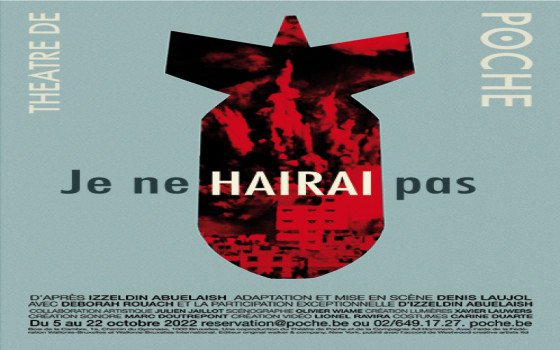
The Palestinian documentary "No Other Land" embodies what the United Nations has documented in countless reports. A UN official says forced transfer is a crime, and Israel's illegal presence in the occupied Palestinian territory must end.

- Europe and Arabs
- Friday , 4 April 2025 10:32 AM GMT
New York: Europe and the Arabs
The Palestinian documentary film "No Other Land," which won this year's prestigious Academy Award, was screened at the United Nations headquarters during a meeting of the UN Committee on the Rights of the Palestinian People. According to the UN daily news bulletin, a copy of which we received this Friday morning, the film, directed by Palestinian and Israeli directors, is a joint Palestinian-Norwegian production. It deals with the situation of Palestinians under occupation, including property demolitions and forced displacement in the Masafer Yatta area of the West Bank. The committee meeting was attended by Palestinian director Basil Adra, who co-directed "No Other Land," the Permanent Observer for Palestine to the UN, Riyad Mansour, human rights lawyer Nita Amar Shiv (via video), and James Terburton, an official from the UN Human Rights Office. Terburton began his remarks by saying that UN reports don't win awards, but the documentary "No Other Land" powerfully and easily captures what the UN has documented in countless reports. He said that for more than 15 years, the UN Human Rights Office has monitored, documented, and warned of the human rights situation in the occupied Palestinian territory and the widespread violations resulting from the 57-year Israeli military occupation.
Forcible transfer is a crime.
The UN official moved on. He also spoke about the situation in Gaza, expressing grave concern about the shrinking space available to civilians "forcibly displaced by the Israeli military."
He stressed the need for Israel to immediately end its restrictions on humanitarian aid and refrain from any actions that could amount to forcible transfer of Gaza's population. He added, "Forcible transfer is a serious violation of international humanitarian law and constitutes a crime under international law."
Over the years, the UN Human Rights Office has reported on the "unnecessary and disproportionate use of force against Palestinians," restrictions on movement, the displacement of tens of thousands, and continued settlement activity throughout the occupied Palestinian territory, Terrebonne said.
Settlement
The UN official referred to the report of the UN High Commissioner for Human Rights on Israeli settlements and said that the transfer of authority over the occupied Palestinian territory from the Israeli military to the Israeli government facilitates continued settlement expansion in the occupied West Bank and its incorporation into the State of Israel.
He said that Israel continues to take measures to transfer its citizens to East Jerusalem and forcibly transfer Palestinians within and from the occupied territory. He noted that there are currently approximately 737,000 Israeli settlers in the West Bank, nearly a third of them in East Jerusalem alone.
He said that steps are being taken regularly to accelerate the construction of additional housing units in existing and new Israeli settlements in East Jerusalem. This is accompanied by the demolition of Palestinian property and structures, often under the pretext of not obtaining building permits, which are virtually impossible for Palestinians, as James Terburton noted.
The head of the Human Rights Office spoke of settler violence and arbitrary restrictions on movement, which severely impact Palestinian livelihoods. He said that the line between settler and state violence is blurring, fostering violence and impunity.
The UN Human Rights Office has repeatedly called on Israel to immediately cease all new settlement activity, evacuate all settlers from the occupied Palestinian territory, and provide reparations for damages caused by decades of illegal settlement activity.
Terburton said, "Israel's illegal presence in the occupied Palestinian territory must end, as affirmed by the International Court of Justice." Committee on the Rights of the Palestinian People
The United Nations Committee on the Exercise of the Inalienable Rights of the Palestinian People was established in 1975 pursuant to General Assembly resolution 3376.
It is mandated to advise the General Assembly on programs aimed at enabling the Palestinian people to exercise their inalienable rights, including "the right to self-determination without external interference, the right to national independence and sovereignty, and the right to return to their homes and property from which they have been displaced."












No Comments Found